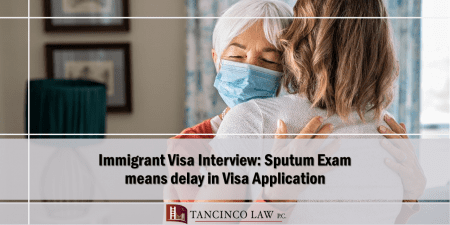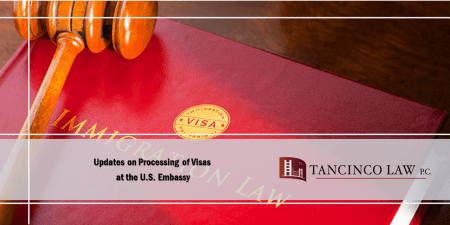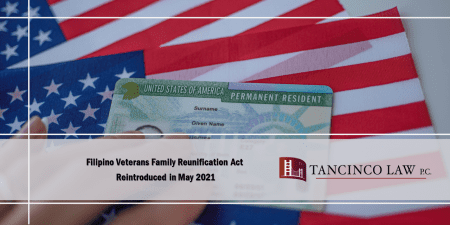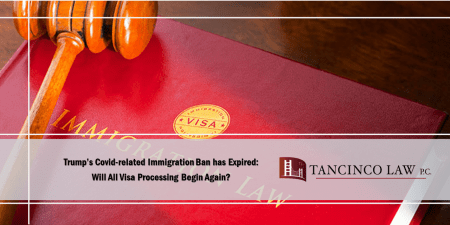Dear Atty. Lou,
My mom is 78 years old and was scheduled for her immigrant visa interview at the U.S. Embassy in Manila. We received a response on her medical examination at St. Luke’s that she will need a sputum test. It will take a few more weeks of additional screening before results are given on the sputum test. Her interview is in 10 days. The screening and results will not be completed by date of her interview.
Should my Mom appear at her scheduled interview or will the immigrant visa interview be canceled? We live in the province and we are wondering if my Mom has to travel to Manila for her interview. We have not received any letter or email canceling her interview. What should we do? What will happen to her visa application if my Mom is tested positive for tuberculosis?
Agnes
~
Dear Agnes,
The U.S. Embassy in Manila generally requires all immigrant visa applicants to complete their medical examination, including any additional testing, before attending their visa interview. Since the results of your mom’s sputum test will not be available by the date of her scheduled interview, it is likely that her interview will be postponed until the medical examination is fully completed. This includes receiving a clearance from St. Luke’s Medical Center, the authorized medical provider for U.S. visa applicants in the Philippines.
When visa applicants have irregular chest x-ray or signs of tuberculosis, the doctor at St. Luke’s Medical Center Extension Clinic (SLEC) will send applicants for sputum testing to confirm. Sputum test is to rule out TB or start treatment. The chest x-rays and subsequent request for sputum test is to protect the health of the applicants, the U.S. citizens.
There may be additional fees for sputum smears and other tests. The sputum culture reports can take 8 to 9 weeks to be available. If the result is negative and the SLEC issues a medical clearance, the visa interview will be scheduled and a visa will eventually be issued. If the sputum test is positive for TB, the visa applicant may need treatment under the DOT (directly observed therapy) program. Of those sent for sputum testing, about 93% of them are false alarms.
If visa applicants have to do 6 months treatment, commonly referred to as DOT (directly observed therapy) they will have to pay for a second medical at completion.
Medical examination at the St. Luke’s Medical Center Extension Clinic (SLEC) increased this month to P28,650 for adults (15 years old and older) and P13,910 for children (14 years old and below). If a sputum culture and screening is to be taken, that will be an additional cost to the visa applicant.
The U.S. Embassy will move your mom’s appointment date upon notification from SLEC that additional tests/screening are required.
Be aware of the expiration date of the medical exam which is valid only for 1 year. Considering delays caused by the additional sputum tests (and treatment) your Mom will have to repeat the whole process if the medical exam expires.
Thank you for your question.
Atty. Lou
(Atty. Lourdes S. Tancinco is an immigration attorney and immigrant rights advocate based in the San Francisco Bay area and a partner at the Tancinco Law P.C. for 32 years. She may be reached at law@tancinco.com, www.tancinco.com, facebook/tancincolaw, or at 1-888-930-0808)





